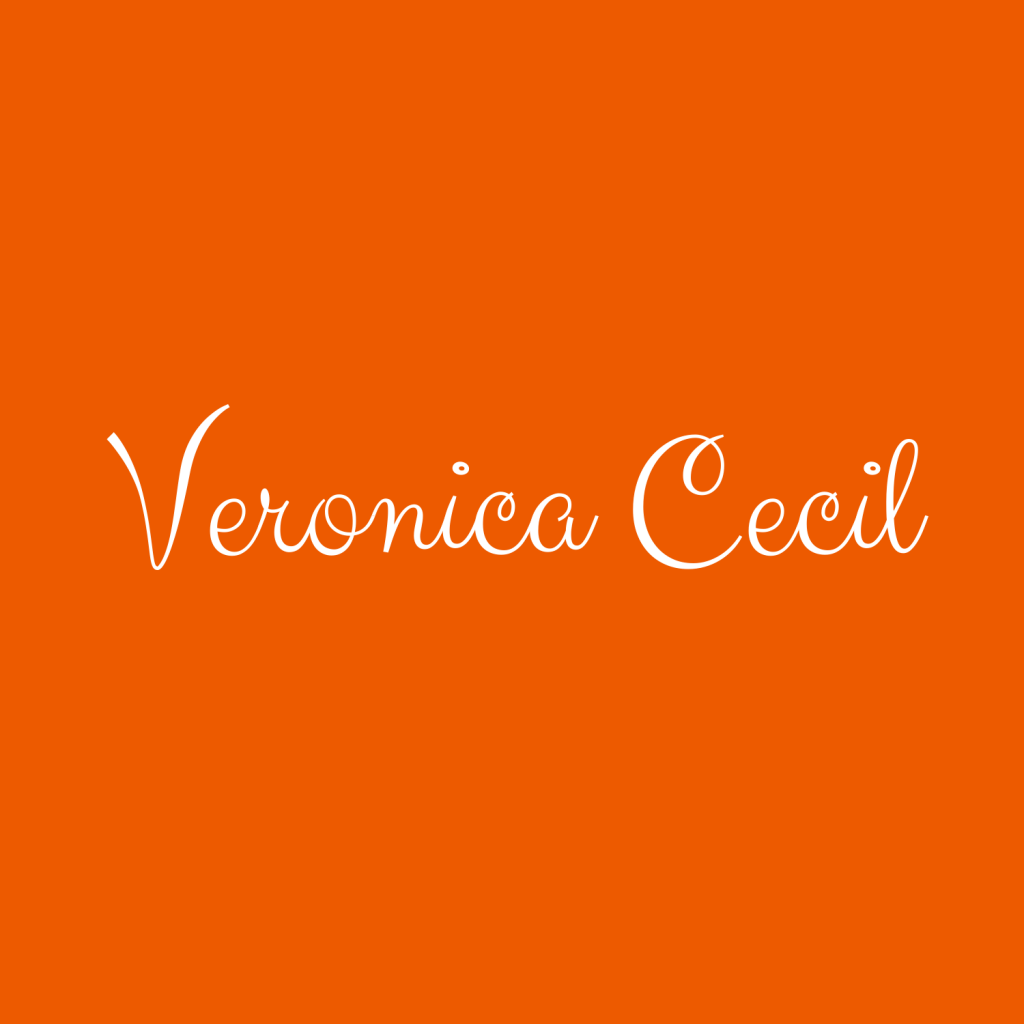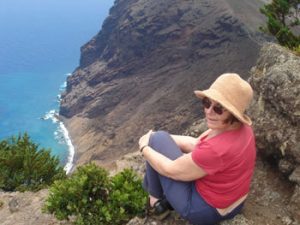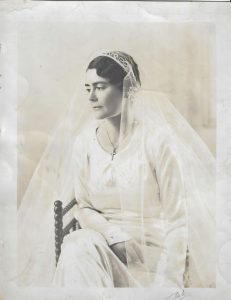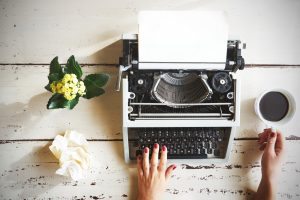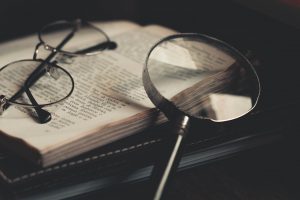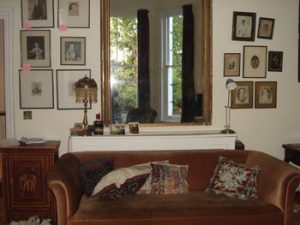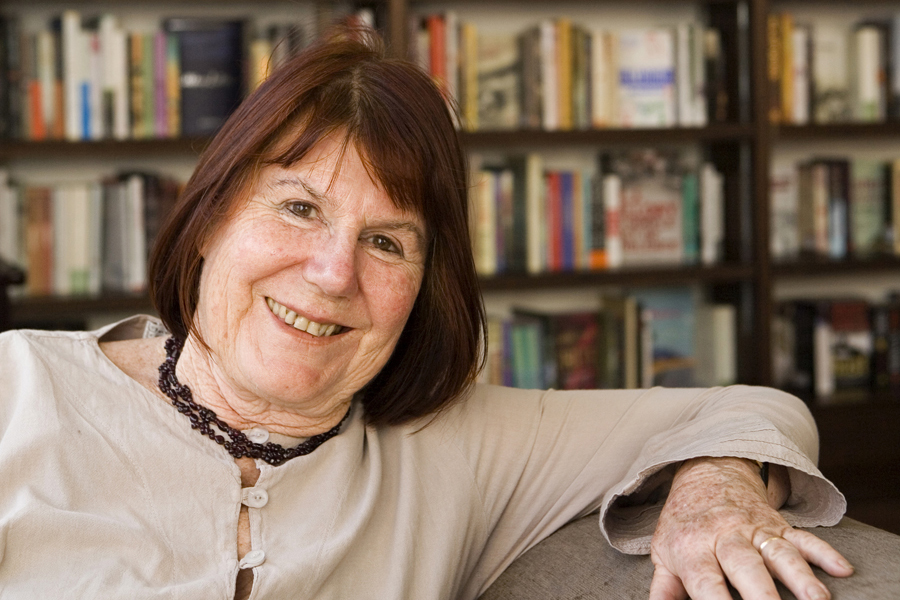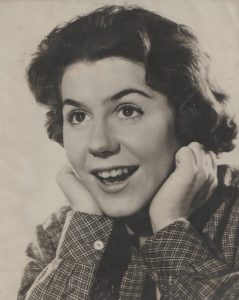Transcript below…
CHILDHOOD / ACTING
So you weren’t supported by your parents very much?
Absolutely not, I didn’t particularly want to, but I was going to go to university and do medicine because that was a good thing to do, though my mum was determined that I was going to be a secretary.
So I got a one-way ticket to England from Africa and just immediately went to drama classes.
At the first lesson the guy said are you going to take this professionally? I said yes because I had actually not thought I could possibly make it you know?
My father was an engineer, a weak character which is why he never stood up for me, but I have to say in my first job I got the part of Gigi, which is a biggie, a big big part. I was playing opposite the leading man with whom I was having an affair and my father did send me some money. Actually, I was paid so little below equity minimum that I had to sleep in in the bar of a pub in the end.
CREATIVITY
After that I think, compulsively, I fought for the right to be creative. If there’s a necessity, this is the thing – most people are creative but we need to explore ourselves and get rid of the rubbish inside.
The great thing about acting is that you have a chance to be all sorts of people you aren’t in real life
WRITING
The thing about writing is that my strongest genre is in memoir which is actually writing about myself.
For years I thought “I can’t do that”.
Soon after I got married, I was bored out of my mind, I started writing and sent off a piece to the radio and said here I am in the congo and here’s a piece, and i’ll say it very nicely because i’m an Actress. They wrote back and said we like your piece but please don’t sound like an actress!
i did writing instead of acting, if you can’t act you’ve got to do something don’t you?
I can hear dialogue, as soon as I get somebody else’s voice I do feel very liberated by it.
I got together with other writers, I’d arranged a kind of rota where there were five of us and we each took everybody else’s children for the day and so I had four working days. I got into a routine that way, I got commissioned to do children’s television, that was the BBC and that was again, real luck.
This was Jackanory Playhouse. It seemed to me that be doing spoofs of fairy stories and making all the princesses ugly and the princes fall on their faces in the mud was quite a feminist agenda. It was quite political and I had great fun turning things upside down. It’s a very good training ground and I absolutely respect children’s writers enormously.
That was my first kind of writing and I look back in horror and think how did I dare do it you know?
It was such a lovely experience, and you went to television house!
CONGO/ Drums on the Night Air
i’d never been anywhere where there was no law and order and such dire food shortages you didn’t even have enough proper food to feed your baby. I did get caught, which was a great dramatic thing in the book, I got caught in this in this war because one of the things we wanted to do was to get away from Leopoldville (which is now Kinshasa). So we escaped up to Conrad’s Heart of darkness – it was right in the middle of the congo. We had to actually take a boat from from Stanleyville down river. It was something like 150 miles to this plantation. It was an amazing journey and I was determined to love this place which in many ways I did because it was so peaceful and gorgeous. When we started hearing rumors of war, both of me and my husband, put our heads in the sands we said “Ah no it won’t happen to us – never could you know”!
So this war broke out and this terrible thing of them arriving and saying “tout suite – you must go now, now“! No, not me i’ve been to the doctor he says i’m about to give birth any moment!
It was a big adventure – I was never frightened because I think you go into survival mode. You’ve got to survive. You’ve got a child and a baby on the way and everything else is unimportant. I didn’t waste any time, the doctor came round and said “i’m going to give you an injection” and I said “thanks a lot. No!” Just tell me what I do and he said cry! Which is a very good bit of advice! So there were only tiny little planes, eight seaters, so they piled me and my little son, sitting on my knee, overburdening this little plane. It didn’t fly us all the way to Kinshasa it only flew us halfway. It was an endurance, the route after that. We stayed overnight and I said to the doctor “look i’m about to give birth” and he said just call me in the middle of the night I will put a man outside your window. In the morning he was very dubious about letting me go on. He got the nurse and between them they went off and had a very serious consultation. This was even more in the middle of the jungle and they piled me onto a plane the next day. We flew to somewhere that was unbearably hot on the equator, had another break They were shuttling people out as fast as possible and then they put me on a plane for for Leopoldville. We were among a huge amount of refugees, it was very dramatic. I said to the doctor who’d come to meet me at the airport well I’ll just go to London, I’ve made it so far? He said ”Oh no we’ll put you on a table and inspect you first”.He said ”you’re already well dilated’ in other words i’d actually gone into labor and I gave birth there, in a war zone. By now the enemy won the other side of the river. I didn’t write about it for years and years because it was difficult. I did one version early on and I just thought this is such a such a dull way of writing. The were two ways I could actually find a way of making it acceptable to myself. One way was that I thought the politics were very important, the political situation, you could not leave that out and the other thing was to send myself up, to make fun of myself. It’s my trick, because if you take yourself too seriously you’re deadly boring! That was the start and then I had various commissions and things which is very nice. Then I did a degree I hadn’t been allowed to do that, and I thought I was going to write like my heroes you know the Absurdists!
I taught drama right after that.
ACTING
I went to drama school but only briefly because my parents were so heartless. They cut me off without any money at all so I not only had to earn enough to live but earn enough to pay my fees. When everybody else at drama school went home, I would get on my scooter and go to an office to work until sometimes 10 and 11 at night. I was absolutely determined but then I lied through my teeth, my parents lured me back to Africa, briefly, because they didn’t want me to go on the stage and they thought that I would marry somebody who was courting me at the time. I came back and immediately went to an agent and said “yes I’ve been to drama school here I am”! I’d only been for two terms – i’ve got a talent for lying I guess! My first job was what is called an assistant stage manager in weekly seaside rep in the summer. The agent rang up and said if you come in straight away somebody has dropped out at the last minute and you might get this job. So I just put on the lowest job dress I had, sailed in, and said ”you’ve got to employ me!” it’s a tough tough time, it was much more difficult, I reckon, getting a job in those days because there wasn’t so much television.
BROADCASTING
I would pitch things and say i’ve got a nice idea to do this and this. Actually one of the things I’m proudest of was my series which was called letters from abroad. I went to Pakistan on a commission to write six scripted pieces. I decided that I would stay in Pakistan for four months and travel around and get to know people and just find programs out of that. I took a tape recorder so I actually made other programs as well to help pay for this long trip. They wanted it fairly fast and I was feeling gutted at that stage for various reasons. It’s a very good way of producing anything, I’m being quite serious now, I thought I don’t care what anybody thinks about this. It’s going out at quarter past two in the afternoon and I don’t care! It meant it freed me up. I wrote these things pretty fast, all six of them. I had been taught to be fairly ruthless about this. One of them wasn’t good enough and I went back to the producer and said I’ve got to re-record this, because it’s not good enough. They don’t like you saying you’ve got to re-record. I didn’t think about it until the Telegraph rang up and said they wanted a photo. This is a very feminist story, they had built up this man (who I knew because we worked on the woman’s hour desk together) He was a less good journalist than me and they had got all the photographs and given lots of money to him and they hadn’t even got a photograph of me! Suddenly every single paper comes in, saying this is the best thing since sliced bread and it was very interesting. When the contract arrived it was awful, it was so low. So I rang up the producer and said I’m not signing this. That was the most daring thing I’d ever done in my life! They came back and sort of two and a half timed it and said oh sorry there was a computer error. It’s a very important subject because we didn’t realize quite how brainwashed we were!
I’ve still got this mentality. Just “little me”. I got the most fantastic publicity for the book when it was published in South Africa and I simply couldn’t believe this was me being flown all over the place and interviewed on television and everything. I just thought this isn’t me at all – i’m not that person!
I must have broadcast for about nine or ten years. There was my husband taking himself so seriously and it was a load of absolute rubbish.
My best interview was with Judi Dench, it was great fun. We just couldn’t stop laughing, either of us, but she was brilliant. It was like gearing yourself up for a long run or a very fast sprint, because her mind moves at the speed of lightning. We loved each other, at least I loved her!
WRITING/ BLOOD FOR OUR BLOOD
The minute you put something into a comic perspective it does help no end. Then it was easy because it was a memoir. I said to my friend and Booker Prize winner Damon Galgood, who’s south African, “there are two books I want to write” and he said write the memoir first because that’s your strength. I didn’t take his advice and I decided to write this murder story which is has taken me forever and a day, because I didn’t know how to write a murder story. I think very laterally, very untidily and for a murder story you have to be logical. One agent said you’ve got to summarize each chapter before you write it. I didn’t think I could possibly do that but in the end that’s what I did. I decided to go out and solve the murder. I also make parallels between the politics that was happening in 1932 and the politics that are happening now. I thought that the reason why that they hadn’t found out why this guy was murdered (they knew who had murdered him) was for political reasons for political expediency. I still think they thought it was a political murder but it wasn’t. I’m glad I spent four months in Pakistan, fantastic things fell into my lap, looking back. I not only met the niece of the murderer, can you believe on a bus but another absolutely seminal figure in the in the story, both, quite by chance. I’ve taken so long to write this book but I feel very strongly that actually fate is very kind to you they throw things up for you. I can tell you I take my chances but then I have to structure the thing into something that works on this murder story. I actually got a huge roll of Christmas paper, because i’m so mean, and wrote each chapter on it as I went. It’s unpublished but publishers and agents have all said if you can do this we’ll publish it! My great idea was to go out as the sleuth and solve it . i’ve got a definitive version that is more than publishable.
OTHER BOOKS
I think you asked in one of your questions how many books i’ve got? So many in embryo or on the go, including a scandal that I heard about my mother. It’s a really good scandal but it’s just getting it right. I have an editor friend who said no you haven’t got the voice on that one she loves the murder story and so it’s really just getting your voice right, getting the structure right and this is why it takes such a long time. It’s getting little fragments. This morning I got a fragment, I wrote it down for the current book but I am so untidy I could lose that fragment! I can suddenly get a bit of inspiration.
If you had a good opinion of yourself you wouldn’t produce anything worthwhile at all!
TALKS
I give talks, I have an hour, I don’t script it, I have a storyboard and I react to my audience. I fill up my hall of 250 people but different people react in different ways. It depends on your audience, these are very intelligent people, but they’re elderly and so I can’t bore them, on the other hand if you have a young audience you’ve got to make jokes about yourself, you’ve got to keep it much lighter. I’m very aware of audiences and I subconsciously gear whatever I’m doing towards the audience. You read the audiences, it’s this magic thing of two sides coming together in in a performance, which is why I love the theatre.
OTHER BOOKS – IMPERIAL CHILDHOOD
This other new book I’m writing which is Confessions of an Imperial childhood. It’s interesting but it’s difficult because as a child you have no preconceptions. You take the world as it is and it’s a growing awareness . Also listening to your mother, listening to other people, suddenly getting moments of realization.
CHILDOOD/RACISM/IMPERIAL CHILDHOOD
My father was an engineer, a weak character which is why he never stood up for me, but I have to say in my first job I got the part of Gigi, which is a biggie, a big big part. I was playing opposite the leading man with whom I was having an affair and my father did send me some money. Actually, I was paid so little below equity minimum that I had to sleep in in the bar of a pub in the end.
I left India at independence when I had just turned nine and spent a hideous year in England. I hated England, it was post-war, but I didn’t hate it because of that. It’s a rule-bound country and after the freedom we’d had it was ghastly. Then we went out to Africa which I have all sorts of criticisms of, because it’s racist and everything else but at least people have guts there. I think we’re too soft here. I get more and more angry about this dreadful sort of self-indulgent softness. I went to a posh girls school in South Africa, all the way from Rhodesia which is where we were living. I became more and more political but ultimately ran away from the implications of what you had to do to help right human rights. You do not realize just how the british are naive and prejudiced. South Africa had to deal with racism big time and I do think that Englands’ politics are very naive on race. South Africa had this huge incredible eruption and we thought it would be a bloodbath. I think this has been a very valuable experience because my whole book is a gradual awareness and yet still having a deep deep racism in me. You never get quite over that. I may have lovely friends who are black and we can have very honest conversations and I can hug and kiss them but somewhere there’s something that says our relationship with the indians was completely different from our relationships to the black people. The Indians, my god cook Dundle Shah was much nicer to me and he loved me more than my father and I adored him.
